
20-21 Mar 2025




20-21 Mar 2025


Thursday 20 March, 7.30pm The Queen's Hall, Edinburgh
Friday 21 March, 7.30pm City Halls, Glasgow
AARON JAY KERNIS Musica Celestis
EÖTVÖS Aurora for double bass solo and string orchestra with accordion (UK Premiere)
Commissioned by the Scottish Chamber Orchestra, Karajan Academy of the Berlin Philharmonic, Lausanne Chamber Orchestra and Tongyeong International Music Festival
Interval of 20 minutes
BEETHOVEN Symphony No 6 ‘Pastoral’
Richard Egarr Conductor *
Nikita Naumov Double bass

Egarr

*Please note: There has been a change to the originally advertised concert. Mark Wigglesworth will no longer be able to take part in this concert, but we are grateful to Richard Egarr who will now conduct these performances.
4 Royal Terrace, Edinburgh EH7 5AB
+44 (0)131 557 6800 | info@sco.org.uk | sco.org.uk
The Scottish Chamber Orchestra is a charity registered in Scotland No. SC015039. Company registration No. SC075079.
THANK YOU
Our Principal Conductor’s Circle are a special part of our musical family. Their commitment and generosity benefit us all – musicians, audiences and creative learning participants alike.
Annual Fund
James and Patricia Cook
Visiting Artists Fund
Colin and Sue Buchan
Harry and Carol Nimmo
Anne and Matthew Richards
International Touring Fund
Gavin and Kate Gemmell
Creative Learning Fund
Sabine and Brian Thomson
Conductor Emeritus Joseph Swensen
Donald and Louise MacDonald
Chorus Director Gregory Batsleer
Anne McFarlane
Principal Second Violin
Marcus Barcham Stevens
Jo and Alison Elliot
Second Violin Rachel Smith
J Douglas Home
Principal Viola Max Mandel
Ken Barker and Martha Vail Barker
Viola Brian Schiele
Christine Lessels
Viola Steve King
Sir Ewan and Lady Brown
Principal Cello Philip Higham
The Thomas Family
Sub-Principal Cello Su-a Lee
Ronald and Stella Bowie
American Development Fund
Erik Lars Hansen and Vanessa C L Chang
Productions Fund
Anne, Tom and Natalie Usher
Bill and Celia Carman
Anny and Bobby White
Scottish Touring Fund
Eriadne and George Mackintosh
Claire and Anthony Tait
Cello Donald Gillan
Professor Sue Lightman
Cello Eric de Wit
Jasmine Macquaker Charitable Fund
Principal Double Bass
Caroline Hahn and Richard Neville-Towle
Principal Flute André Cebrián
Claire and Mark Urquhart
Principal Oboe Robin Williams
The Hedley Gordon Wright Charitable Trust
Principal Clarinet Maximiliano Martín
Stuart and Alison Paul
Principal Bassoon Cerys Ambrose-Evans
Claire and Anthony Tait
Principal Timpani Louise Lewis Goodwin
Geoff and Mary Ball


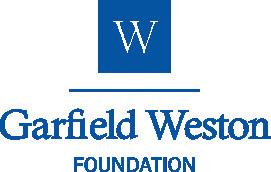
Diamond
The Cockaigne Fund
Malcolm and Avril Gourlay
John and Jane Griffiths
James and Felicity Ivory
Robin and Catherine Parbrook
George Ritchie
Tom and Natalie Usher
Platinum
E.C. Benton
Michael and Simone Bird
Silvia and Andrew Brown
David Caldwell in memory of Ann
Dr Peter Williamson and Ms Margaret Duffy
Judith and David Halkerston
Audrey Hopkins
David and Elizabeth Hudson
Helen B Jackson
Dr and Mrs Peter Jackson
Dr Daniel Lamont
Graham and Elma Leisk
Chris and Gill Masters
Duncan and Una McGhie
Anne-Marie McQueen
James F Muirhead
Patrick and Susan Prenter
Mr and Mrs J Reid
Martin and Mairi Ritchie
Hilary E Ross
Elaine Ross
George Rubienski
Jill and Brian Sandford
Michael and Elizabeth Sudlow
Robert and Elizabeth Turcan
Alan and Sue Warner
Finlay and Lynn Williamson
Ruth Woodburn
William Zachs
Gold
Peter Armit
Adam Gaines and Joanna Baker
John and Maggie Bolton
Elizabeth Brittin
James Wastle and Glenn Craig
Jo and Christine Danbolt
James and Caroline Denison-Pender
Andrew and Kirsty Desson
David and Sheila Ferrier
Chris and Claire Fletcher
Dr J W E Forrester
James Friend
Iain Gow
Margaret Green
Christopher and Kathleen Haddow
Catherine Johnstone
Gordon Kirk
Janey and Barrie Lambie
Mike and Karen Mair
Roy and Svend McEwan-Brown
John and Liz Murphy
Tom Pate
Sarah and Spiro Phanos
Maggie Peatfield
Charles Platt and Jennifer Bidwell
Alison and Stephen Rawles
Andrew Robinson
Olivia Robinson
Anne McAlister and Philip Sawyer
Irene Smith
Dr Jonathan Smithers
Ian S Swanson
Ian and Janet Szymanski
John-Paul and Joanna Temperley
Bill Welsh
Robert Mackay and Philip Whitley
Catherine Wilson
Neil and Philippa Woodcock
G M Wright
Silver
Roy Alexander
Fiona and Neil Ballantyne
The Batsleer Family
Jack Bogle
Jane Borland
Dinah Bourne
Michael and Jane Boyle
Mary Brady
John Brownlie
Laura Buist
Robert Burns
Kate Calder
Sheila Colvin
Lorn and Camilla Cowie
Lord and Lady Cullen of Whitekirk
Adam and Lesley Cumming
Dr Wilma Dickson
Sylvia Dow
Raymond Ellis
Dr and Mrs Alan Falconer
Sheila Ferguson
Malcolm Fleming
Dr William Irvine Fortescue
Dr David Grant
Anne Grindley
Andrew Hadden
J Martin Haldane
Ronnie and Ann Hanna
Roderick Hart
Norman Hazelton
Ron and Evelynne Hill
Philip Holman
Clephane Hume
Tim and Anna Ingold
David and Pamela Jenkins
Margaret Mortimer and Ken Jobling
Julie and Julian Keanie
Professor Christopher and Mrs Alison Kelnar
Dr and Mrs Ian Laing
Geoff Lewis
Christopher and Molly Ludlam
Dorothy A Lunt
Vincent Macaulay
James McClure in memory of Robert Duncan
Barry McCorkell
Lucy McCorkell
Gavin McCrone
Brian Miller
Alistair Montgomerie
Andrew Murchison
Pamela Andrews and Alan Norton
Gilly Ogilvy-Wedderburn
David and Tanya Parker
John Peutherer in memory of Audrey Peutherer
James S Potter
Timothy Barnes and Janet Sidaway
Catherine Steel
Takashi and Mikako Taji
Douglas and Sandra Tweddle
C S Weir
Susannah Johnston and Jamie Weir
We are indebted to everyone acknowledged here who gives philanthropic gifts to the SCO of £300 or greater each year, as well as those who prefer to remain anonymous.
We are also incredibly thankful to the many individuals not listed who are kind enough to support the Orchestra financially on a regular or ad hoc basis. Every single donation makes a difference.
Become a regular donor, from as little as £5 a month, by contacting Hannah Wilkinson on 0131 478 8364 or hannah.wilkinson@sco.org.uk.
“A crack musical team at the top of its game.”

HM The King
Patron
Donald MacDonald CBE
Life President
Joanna Baker CBE
Chair
Gavin Reid LVO
Chief Executive
Maxim Emelyanychev
Principal Conductor
Andrew Manze
Principal Guest Conductor
Joseph Swensen
Conductor Emeritus
Gregory Batsleer
Chorus Director
Jay Capperauld
Associate Composer
Information correct at the time of going to print
First Violin
Charlotte Saluste-Bridoux
Afonso Fesch
Emma Baird
Kana Kawashima
Aisling O’Dea
Fiona Alexander
Amira Bedrush-McDonald
Sarah Bevan Baker
Second Violin
Gordon Bragg
Michelle Dierx
Rachel Spencer
Tom Hankey
Catherine James
Will McGahon
Viola
Jessica Beeston
Zoë Matthews
Brian Schiele
Steve King
Cello
Hugh Mackay
Su-a Lee
Donald Gillan
Eric de Wit
Bass
Jamie Kenny
Toby Hughes
Flute
André Cebrián
Alba Vinti Lopez
Piccolo
Marta Gómez
Oboe
Katherine Bryer
Fraser Kelman
Clarinet
Jernej Albreht
William Stafford
Bassoon
Cerys Ambrose-Evans
Alison Green
Kana Kawashima
First Violin
Horn
Boštjan Lipovšek
Jamie Shield
Trumpet
Peter Franks
Shaun Harrold
Trombone
Duncan Wilson
Nigel Cox
Timpani
Louise Lewis Goodwin
Accordion Djordje Gagic
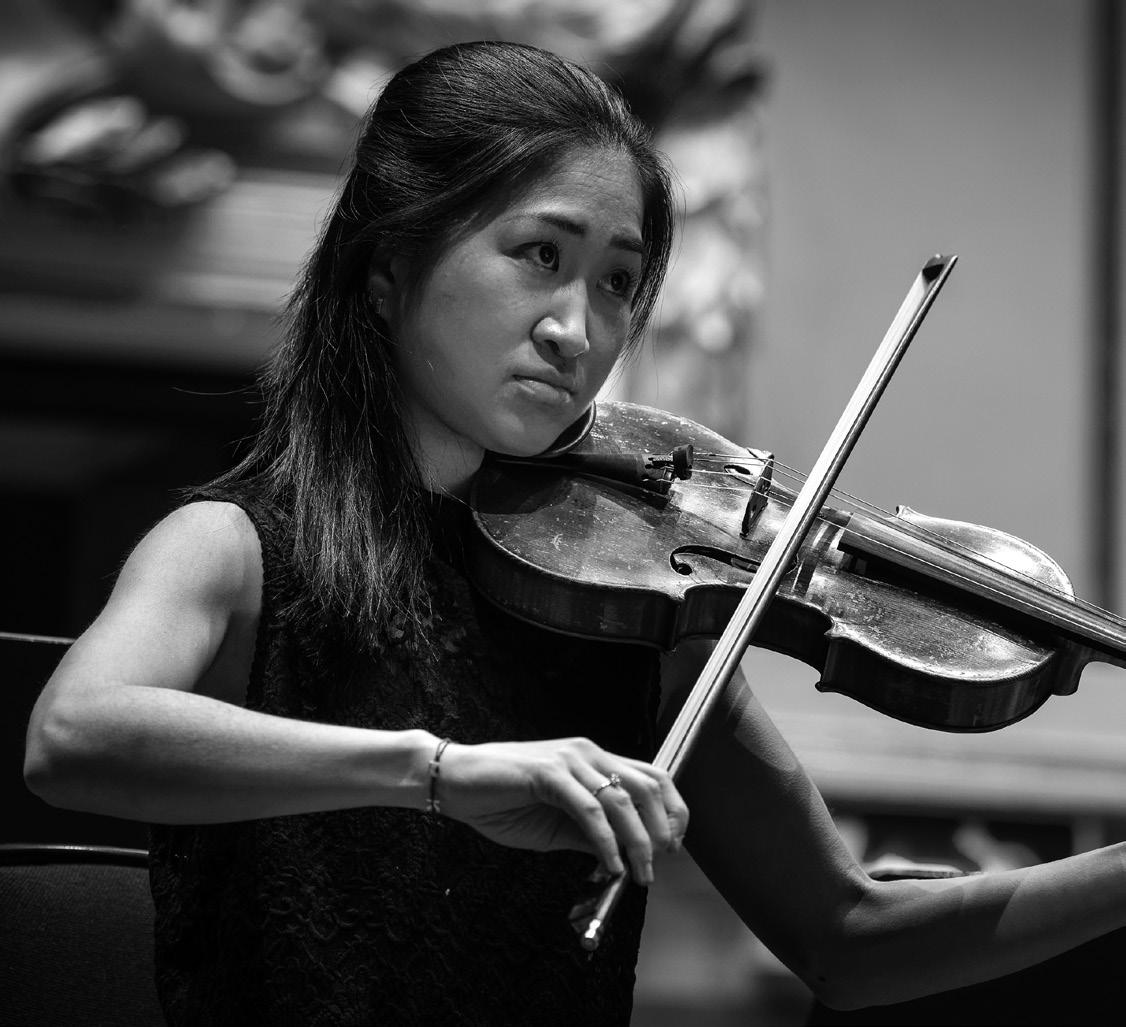
AARON JAY KERNIS (b.1960)
Musica Celestis (1990)
EÖTVÖS (1944-2024)
Aurora for double bass solo and string orchestra with accordion (2019)
(UK Premiere)
I II III
Commissioned by the Scottish Chamber Orchestra, Karajan Academy of the Berlin Philharmonic, Lausanne Chamber Orchestra and Tongyeong International Music Festival.
BEETHOVEN (1770-1827)
Symphony No 6 in F major, Op 68, ‘Pastoral’ (1802–1808)
Allegro ma non troppo
Andante molto mosso
Allegro
Allegro
Allegretto
If you drill down into its most fundamental elements, music, of course, is inseparable from nature, or at least natural forces and processes. Even among the SCO’s musicians in front of you this evening, just think of the vibrating columns of air inside flutes and trumpets (and other wind instruments, for that matter) that give those instruments their distinctive sounds. Or think of the similarly vibrating lengths of wire (or, occasionally, gut), set in motion by horsehair and amplified by carefully shaped wooden boxes, that make up an orchestra’s string section. On a more cosmic scale, it’s hardly surprising that ancient philosophers speculated about musical relationships between planetary orbits, their respective rhythms lasting years or more, and the results permeating the very souls of humankind.
So to think of music being inspired or influenced by nature partly misses the bigger point that music simply is nature, albeit corralled, arranged and refined by humans (and, arguably, a few other animals too). Nonetheless, nature lies behind the three pieces in tonight’s concert, which zoom in from the vast, mystical expanses of space via an aweinducing cosmic phenomenon perceived from our home planet, and finally focus on a single human’s contemplation of his relationship with the natural world around him.
Philadelphia-born, New York-based Aaron Jay Kernis is one of America’s most accomplished contemporary composers: he’s taught at Yale University, won a Grammy Award and a Pulitzer Prize, and created music for many of the country’s most prestigious musical ensembles. He studied in San Francisco

Philadelphia-born, New York-based Aaron Jay Kernis is one of America’s most accomplished contemporary composers: he’s taught at Yale University, won a Grammy Award and a Pulitzer Prize, and created music for many of the country’s most prestigious musical ensembles.
with John Adams, and cites minimalism as a pervasive influence across his music, which also takes in lush 19thcentury Romanticism, Debussy-like impressionism and even hip-hop. He wrote tonight’s opening piece, Musica celestis , in 1990, and it counts as one of his best-known and best-loved works, showing clear parallels, too, with the concept of the music of the spheres in its more theological depictions. Kernis writes about the piece:
" Musica celestis is inspired by the medieval conception of that phrase which refers to the singing of the angels in heaven in praise of God without end.
‘The office of singing pleases God if it is performed with an attentive mind, when in this way we imitate the choirs of angels who are said to sing the Lord’s praises
without ceasing.’ (Aurelian of Réöme, translated by Barbara Newman) I don’t particularly believe in angels, but found this to be a potent image that has been reinforced by listening to a good deal of medieval music, especially the soaring work of Hildegard of Bingen (1098-1179). This movement follows a simple, spacious melody and harmonic pattern through a number of variations (like a passacaglia) and modulations, and is framed by an introduction and coda".
From the music of heaven itself (or perhaps of the heavens), we descend towards the Earth, but before hitting the ground we’ll pause at 30,000 feet or so.
Transylvanian-born Péter Eötvös was a hugely influential figure in 20th- and 21stcentury avant-garde music as a noted conductor and close collaborator with
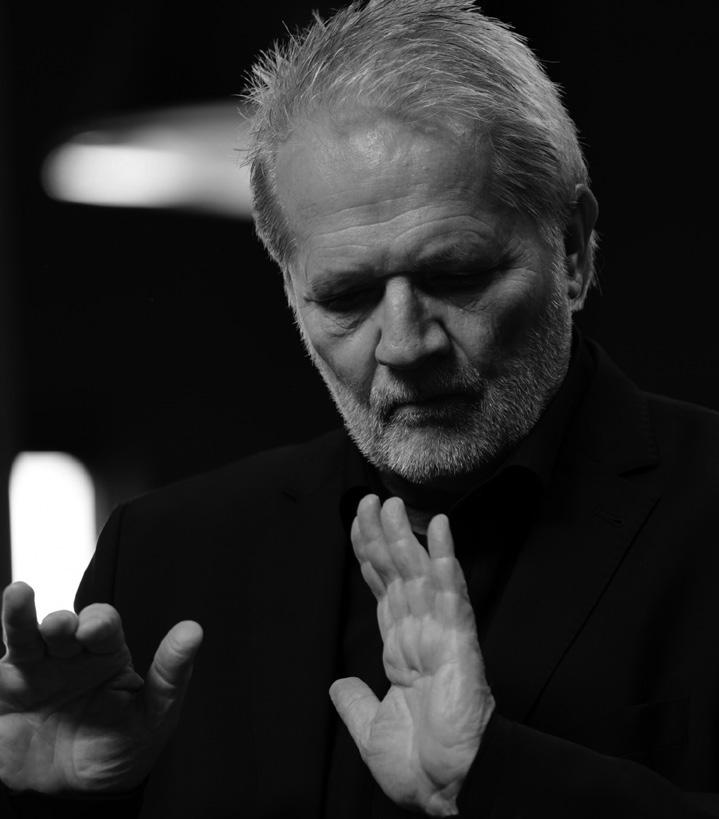
Transylvanian-born Péter Eötvös was a hugely influential figure in 20th- and 21st-century avant-garde music as a noted conductor and close collaborator with Stockhausen and Boulez, among many other composers, as well as a celebrated composer of colourful, dramatic, intensely expressive music in his own right.
Stockhausen and Boulez, among many other composers, as well as a celebrated composer of colourful, dramatic, intensely expressive music in his own right, including no fewer than 14 operas, many film and theatre scores, and a huge number of orchestral and chamber works. Eötvös died almost exactly a year ago, on 24 March 2024, at the age of 80. He wrote about his 2019 double bass concerto Aurora :
"In 1971, I was flying over Anchorage in Alaska when I saw an incredible light effect through the aeroplane window: it was the aurora borealis. I have never ever seen anything so powerful or such a blaze of colour in motion. It was not only beautiful, but also extremely powerful, almost threatening and simply monumental. In my composition Aurora , I have attempted
to reproduce my own impressions of this moment when I felt myself as an element of this cosmos.
Aurora is my first piece for solo double bass. Up until now, I have always used the lower registers of this instrument and was astounded that the double bass could also soar up into the highest ranges, sounding as powerful and colourful as the aurora borealis itself. Accompanying the solo double bass in a small string orchestra and an accordion, as well as two additional orchestral double basses, which are placed in the concert hall to form a triangle with the soloist".
If Aurora recounts its composer’s own responses to a powerful natural phenomenon, then tonight’s final piece –though written more than two centuries
earlier, and using a very different musical language – attempts something similar.
In his ‘Pastoral’ Symphony, No 6, we might imagine that Beethoven was breaking new symphonic ground in his detailed depictions of nature, his vivid musical portrait of the countryside. And yes, there’s a bit of that in the piece. But in fact, surprisingly little: a babbling brook, a few bird calls, some jolly dancing peasants and a tumultuous storm. Nor was a symphony that aimed to evoke nature a particularly new idea: Justin Heinrich Knecht had pulled off something similar 25 years before Beethoven in his Portrait musical de la nature , and set something of a trend in the process.
What’s fresher and more unusual about Beethoven’s ‘Pastoral’ Symphony is that it examines humankind’s relationship with nature, and more specifically Beethoven’s own, rather than simply painting a pretty picture. The composer said as much when he described it as ‘more an expression of feeling than tone painting’. He’s known to have loved being in the countryside, taking long walks on the outskirts of Vienna, and spending almost every summer far from the city. He wrote to his friend (and possible dedicatee of ‘Für Elise’) Therese Malfatti: ‘how delighted I shall be to ramble for a while through bushes, woods, under trees, over grass and rocks. No one can love the country as much as I do.’
It’s probably not too far-fetched to suggest that immersing himself in nature provided a sense of solace and consolation from Beethoven’s loneliness and his increasing deafness, with the inevitable sense of despair it provoked. Indeed, he’s known to have begun work on the ‘Pastoral’
Symphony in 1802, the same year that he planned to reveal his contemplation of suicide to his brothers in the unsent letter that’s become known as the Heiligenstadt Testament.
The journey the Symphony charts is very much an internal, even heroic, one, through danger and trauma to spiritual gratitude and fulfilment. With its joyfully uncomplicated opening material – a bagpipe-like drone in the cellos and basses, with a simple, rustic melody in the violins – there’s no doubt as to the mood and location of Beethoven’s first movement, which he titles ‘The awakening of happy feelings on arriving in the country’. Nonetheless, just as he does in the famous opening of his Fifth Symphony (which he was working on concurrently), Beethoven derives the rest of his opening movement almost entirely from these basic opening ideas, even if it’s with very different results.
His second movement, ‘Scene by the Brook’, contains the Symphony’s clearest evocations of nature’s own sounds: the stream ripples through the entire movement in the strings’ incessant rhythms, and Beethoven quotes birdsong in the violins and flutes, and most clearly near the end of the movement, where he labels his avian visitors as a nightingale (flute), quail (oboe) and cuckoo (clarinets).
His lively third movement, ‘Merry gathering of country folk’, marks the beginning of a continuous flow of music that will take the Symphony through to its conclusion. Beethoven presents a vibrant Austrian peasant dance in a witty evocation of a country band, whose players miss their cue by a single beat and come in on the
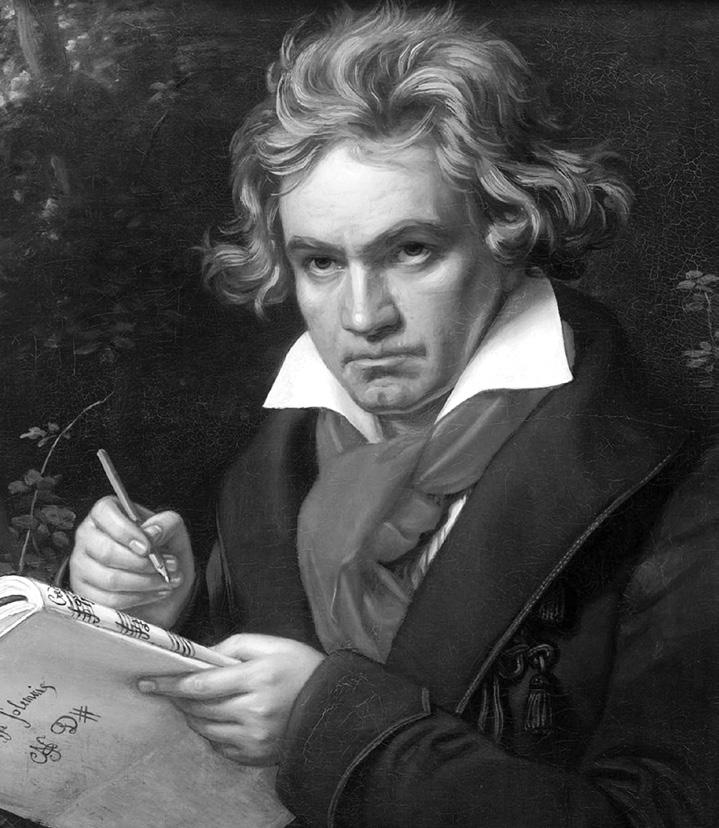
What’s fresher and more unusual about Beethoven’s ‘Pastoral’ Symphony is that it examines humankind’s relationship with nature, and more specifically Beethoven’s own, rather than simply painting a pretty picture.
‘wrong’ note – though the composer’s writing is warmly affectionate rather than mocking. Indeed, he even half-jokingly suggested he might join them in their supposedly simple life, giving up music entirely should the deterioration in his hearing prevent him from continuing.
Beethoven’s peasant idyll is interrupted, however, by the first, distant rumblings of a fast-approaching storm, which erupts across the orchestra in all manner of unconventional sonic effects, from scrubbing string tremolos and surging timpani rolls, to snarling trombones and a shrill wind whistling from the piccolo.
The storm passes, however, and Beethoven allows us a glimpse into the profound calm and consolation he gains from nature in his restrained, luminous, deeply spiritual
finale, which he titles ‘Shepherd’s song. Happy and thankful feelings after the storm’. After a brief moment of two keys happening simultaneously as his opening clarinet hands over its tune to a horn (an effect that 20th-century composers would take up far more extensively), Beethoven spins his quiet, unassuming opening violin melody to ever greater visionary splendour as the movement progresses. His shrill piccolo is left behind, but he retains his two trombones, no doubt feeling their ecclesiastical connotations appropriate for this hymn of thanks. But this is no Christian act of worship from Beethoven the (probable) atheist: having endured the violence of the storm, he expresses his gratitude instead to the natural world itself, in all its vast, dangerous variety.
© David Kettle
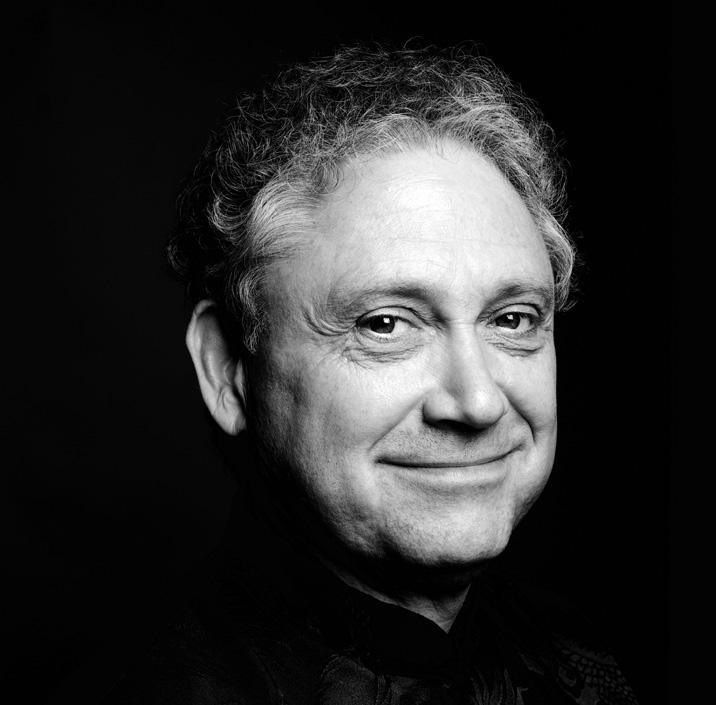
Richard Egarr is Principal Guest of the Residentie Orkest, Artistic Partner of the St Paul Chamber and Music Director Emeritus of the Philharmonia Baroque. He was Music Director of the Academy of Ancient Music 2005-2020 and Associate Artist with the Scottish Chamber Orchestra 2011-2017.
He straddles the worlds of historically-informed and modern symphonic performance and has conducted many leading symphony orchestras, notably the London Symphony, Royal Concertgebouw and Philadelphia orchestras.
As well as an accomplished conductor he is a brilliant harpsichordist, and equally skilled on the organ and fortepiano, playing recitals at major venues such as Wigmore and Carnegie Hall. His extensive discography includes solo discs on Harmonia Mundi and on Linn, for whom he also records as half of Duo Pleyel (four hands historic keyboards). Together with the Academy of Ancient Music he has won Gramophone Awards in 2007 (Handel) and 2021 (Dussek).
He trained as a choirboy at York Minster, was organ scholar at Clare College Cambridge, and later studied with Gustav and Marie Leonhardt. He teaches at the Amsterdam Conservatoire and is Visiting Artist at the Juilliard School in New York.
For full biography please visit sco.org.uk
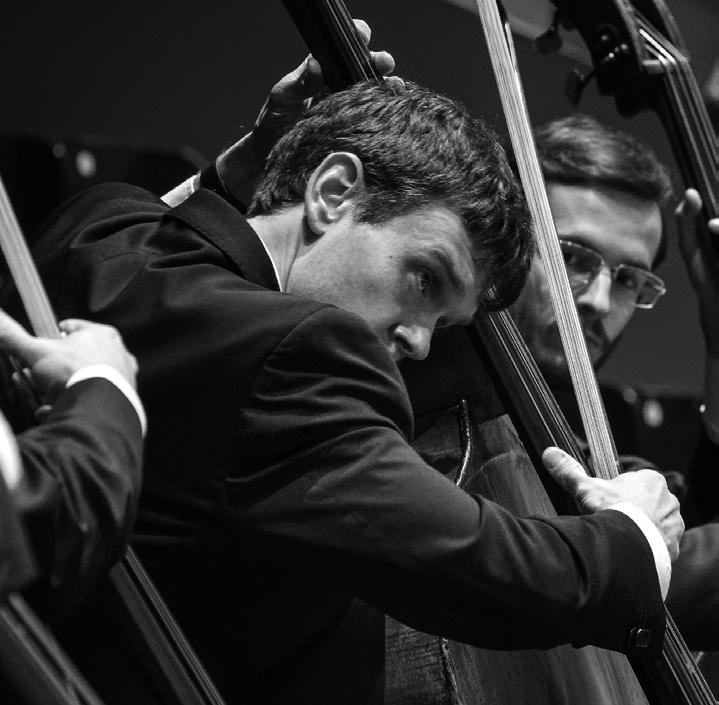
Born in Russia, Nikita attended the Karaganda Special Music School in Kazakhstan. He then studied at the Rimsky-Korsakov Conservatoire in St Petersburg, during which time he was invited to study at the Guildhall School of Music and Drama, funded by the Leverhulme Trust.
Nikita has recently become Principal Double Bass with the Royal Scottish National Orchestra after being Principal Double Bass with the Scottish Chamber Orchestra for 14 years. He has worked with many of the finest orchestras and played as a guest principal with the London Symphony Orchestra, BBC Symphony Orchestra, Royal Northern Sinfonia, Royal Scottish National Orchestra, Royal Philharmonic Orchestra, Royal Liverpool Philharmonic Orchestra, BBC National Orchestra of Wales, Oslo Philharmonic Orchestra, Netherlands Philharmonic Orchestra, Amsterdam Sinfonietta and the Stavanger Symphony Orchestra.
He regularly appears as a soloist and has won numerous prizes, including at the 2012 Koussevitzky double bass competition in St Petersburg. His solo performances include, Hallgrímsson’s Sonnambulo for Double Bass with the Reykjavik Chamber Orchestra in Iceland, Tubin’s Double Bass Concerto at the Pärnu music festival, Koussevitzky’s Double Bass Concerto with the Scottish Chamber Orchestra on tour in Scotland and with the St Petersburg Camerata at the Musical Olympus festival, Bottesini's Lucia di Lammermoor with the Karaganda Symphony Orchestra, a recital at The Cumnock Tryst including Vask’s Bass Trip, Bottesini’s Concerto alla Mendelssohn, Rachmaninoff’s Vocalise with Lars Vogt at Heimbach "Spannungen" Kammermusik Festival and Bottesini‘s Gran Duo Concertante with Benjamin Marquise Gilmore and the Scottish Chamber Orchestra. Nikita is a friend of the Scottish Bass Trust with whom he frequently performs recitals and with whom he partly commissioned Sonnambulo
Nikita regularly leads master classes around the world and teaches double bass at the Royal Conservatoire of Scotland.
For full biography please visit sco.org.uk
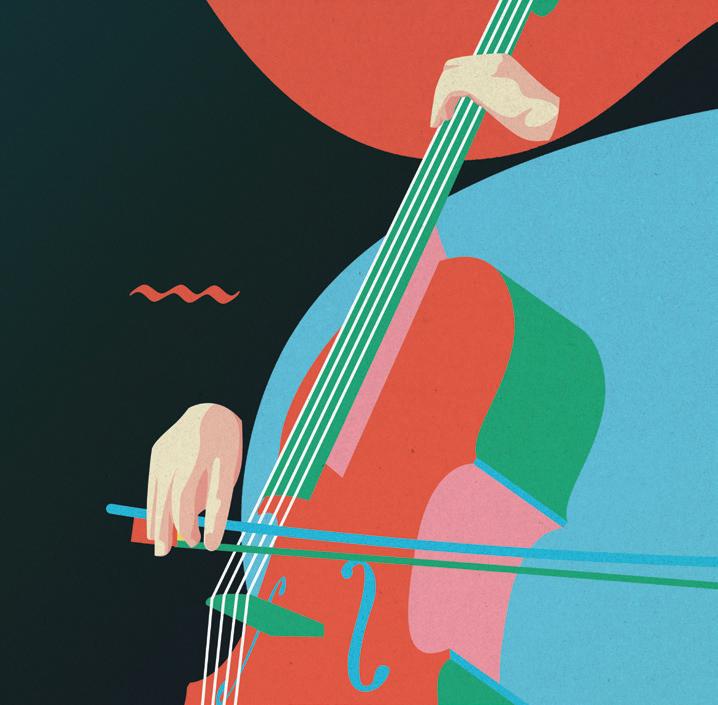
The Scottish Chamber Orchestra (SCO) is one of Scotland’s five National Performing Companies and has been a galvanizing force in Scotland’s music scene since its inception in 1974. The SCO believes that access to world-class music is not a luxury but something that everyone should have the opportunity to participate in, helping individuals and communities everywhere to thrive. Funded by the Scottish Government, City of Edinburgh Council and a community of philanthropic supporters, the SCO has an international reputation for exceptional, idiomatic performances: from mainstream classical music to newly commissioned works, each year its wide-ranging programme of work is presented across the length and breadth of Scotland, overseas and increasingly online.
Equally at home on and off the concert stage, each one of the SCO’s highly talented and creative musicians and staff is passionate about transforming and enhancing lives through the power of music. The SCO’s Creative Learning programme engages people of all ages and backgrounds with a diverse range of projects, concerts, participatory workshops and resources. The SCO’s current five-year Residency in Edinburgh’s Craigmillar builds on the area’s extraordinary history of Community Arts, connecting the local community with a national cultural resource.
An exciting new chapter for the SCO began in September 2019 with the arrival of dynamic young conductor Maxim Emelyanychev as the Orchestra’s Principal Conductor. His tenure has recently been extended until 2028. The SCO and Emelyanychev released their first album together (Linn Records) in November 2019 to widespread critical acclaim. Their second recording together, of Mendelssohn symphonies, was released in November 2023. Their latest recording, of Schubert Symphonies Nos 5 and 8, was released on 1 November.
The SCO also has long-standing associations with many eminent guest conductors and directors including Principal Guest Conductor Andrew Manze, Pekka Kuusisto, François Leleux, Nicola Benedetti, Isabelle van Keulen, Anthony Marwood, Richard Egarr, Mark Wigglesworth, Lorenza Borrani and Conductor Emeritus Joseph Swensen.
The Orchestra’s current Associate Composer is Jay Capperauld. The SCO enjoys close relationships with numerous leading composers and has commissioned around 200 new works, including pieces by Sir James MacMillan, Anna Clyne, Sally Beamish, Martin Suckling, Einojuhani Rautavaara, Karin Rehnqvist, Mark-Anthony Turnage, Nico Muhly and the late Peter Maxwell Davies.

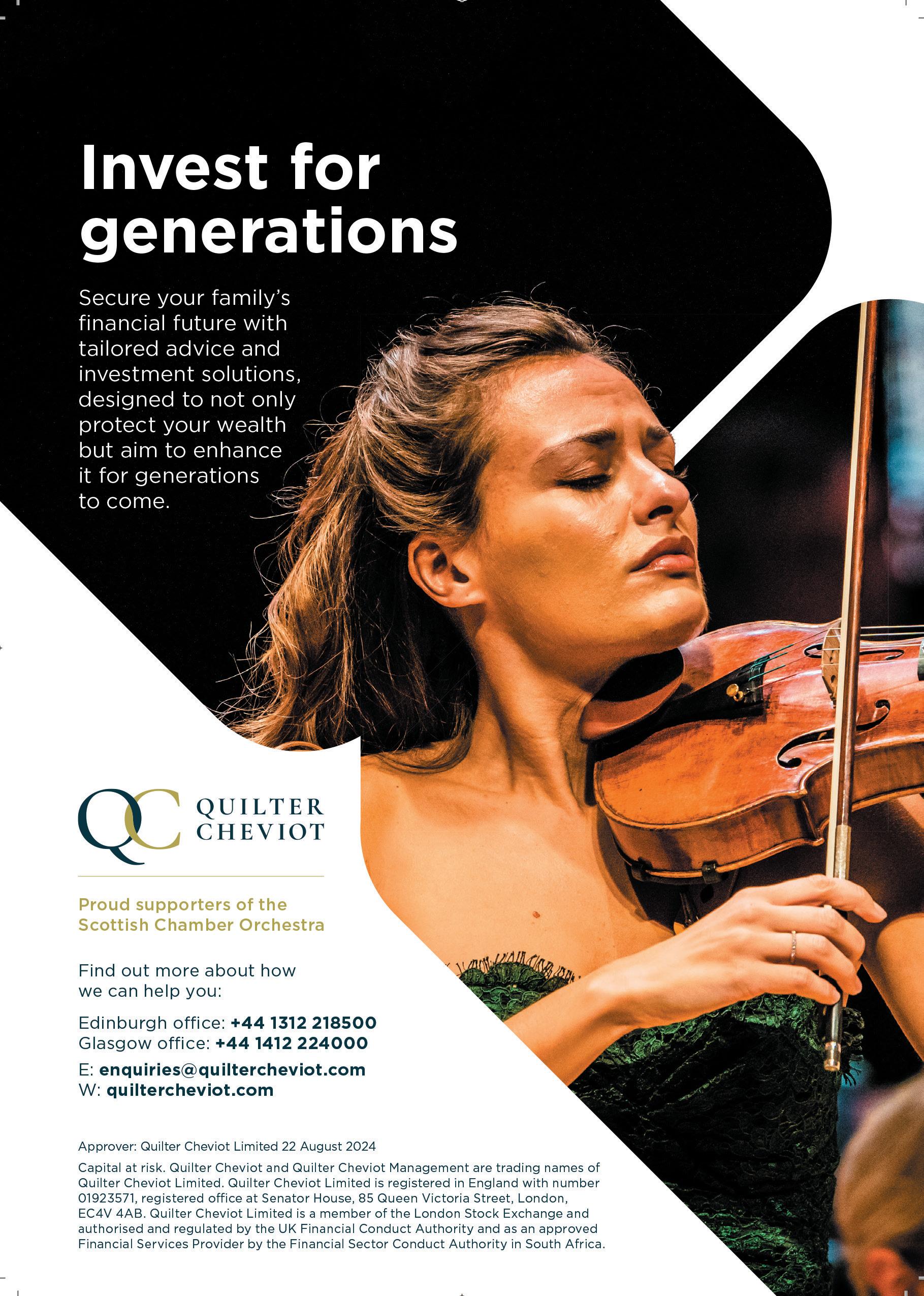
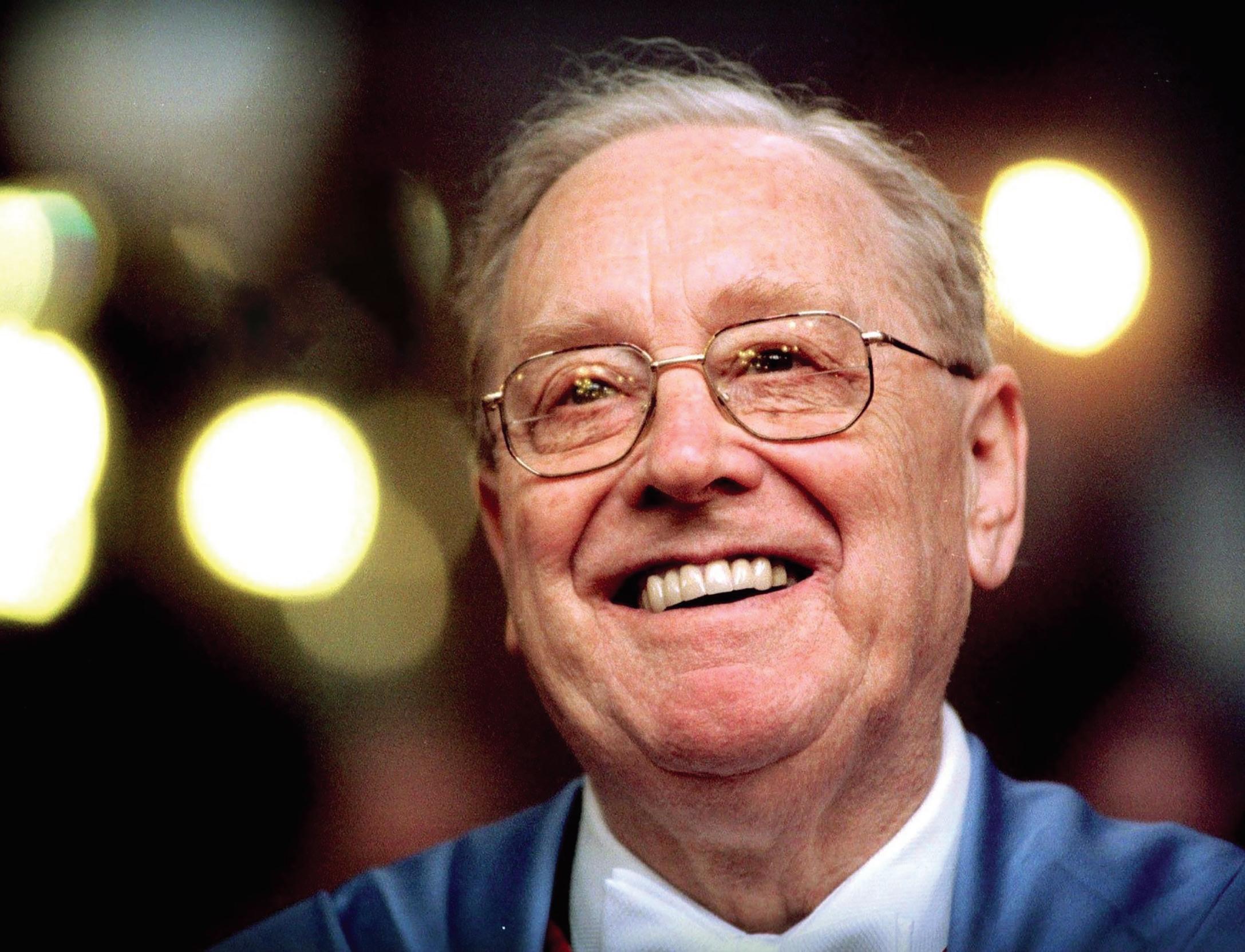
the Gift of Music
Supporting the Scottish Chamber Orchestra through a gift in your Will is one of the most meaningful ways to help secure our future.
Sir Charles Mackerras, our former Conductor Laureate, showed remarkable generosity by pledging his SCO recording royalties in perpetuity. In his honour, and to thank those including the SCO in their legacy plans, we established The Sir Charles Mackerras Circle.
Circle members enjoy exclusive benefits, including an invitation to an annual behindthe-scenes event to see how their support brings exceptional musical experiences to communities across Scotland and beyond.
To learn more, contact Mary at mary.clayton@sco.org.uk or call 0131 478 8369.
Together, we can ensure the gift of music resonates for generations to come.
The SCO is a charity registered in Scotland No SC015039.